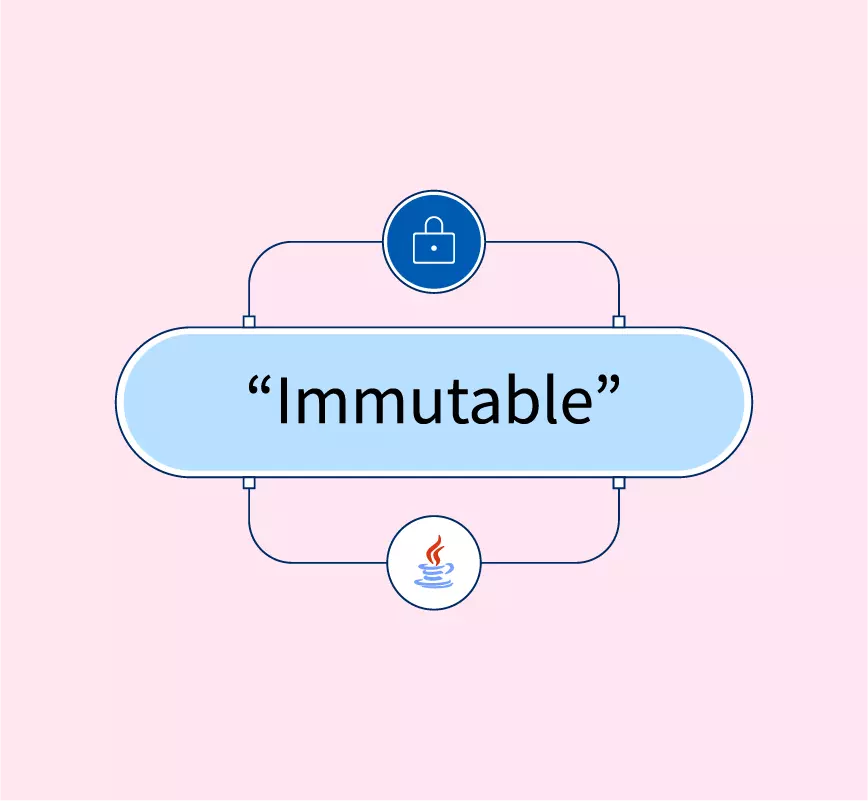Why Are Strings Immutable in Java? Crucial Understanding for Programmers
Why Are Strings Immutable in Java? Crucial Understanding for Programmers
Blog Article
Discovering the Advantages of Unalterable Strings in Modern Shows Paradigms
In the world of modern programs paradigms, the idea of immutable strings stands as a foundation of robust software program advancement. The advantages they offer go past simple comfort; they essentially change the way data is handled within applications. By embracing unalterable strings, programmers can make certain boosted data stability, improved string safety and security, simplified debugging procedures, raised security actions, and efficient performance optimization. These advantages work as a testimony to the profound impact that accepting immutability can carry the reliability and performance of software systems.
Improved Information Integrity

By stopping the adjustment of string items, immutability removes the danger of unintentional modifications to the information they hold. This not only enhances the safety of the information yet additionally improves the integrity of the code that counts on these strings.
Immutability additionally sustains much safer multithreading settings, as concurrent accessibility to immutable strings does not posture the danger of information corruption through simultaneous modifications. This property streamlines the procedure of managing strings in parallel shows situations.
In significance, immutability functions as a safety guard around the data saved within strings, boosting their honesty by making sure that as soon as defined, their values remain unmodified throughout the program's implementation.

Boosted String Safety And Security
Unalterable strings enhance the thread safety of programs by guaranteeing that as soon as a string object is created, its worth can not be customized. This residential property removes the threat of simultaneous threads trying to customize the very same string concurrently, which can lead to information corruption or inconsistent states in the program - Why are strings immutable in Java?. In a multi-threaded environment, where several threads accessibility and adjust data concurrently, the immutability of strings offers a degree of safety and security by assuring that the data remains the same throughout its lifecycle
Streamlined Debugging Processes
Given the enhanced string safety and security promoted by immutable strings, a considerable advantage arises in the world of simplified debugging processes. Immutable strings, when created, can not be altered, making it less complicated to map the circulation of data and identify the source of pests in a program. This immutability makes sure that strings stay consistent throughout the implementation of the program, lowering the chance of unforeseen adjustments that can bring about errors.
When debugging with mutable strings, designers often come across issues where a string's value is modified unintentionally, making it challenging to pinpoint the origin of a bug. However, with immutable strings, the information remains the same, permitting programmers to concentrate on evaluating the real reasoning of the code as opposed to locating where and when a string was modified improperly.
In addition, unalterable strings streamline the debugging process by allowing simpler reproduction of pests. Given that immutable strings do not change state, programmers can recreate and research pests better, leading to quicker identification and resolution of concerns within the codebase. This structured debugging operations inevitably contributes to higher software program high quality and improved total development performance.

Enhanced Security Steps
Enhancing data defense and strengthening system honesty, the usage of immutable strings in software application applications adds substantially to boosted security steps. Unalterable strings, when produced, can not be modified, giving a vital protection against malicious meddling or unapproved gain access to. By making certain that sensitive data stored in strings continues to be unchanged throughout the program's implementation, the risk of information breaches or injection strikes is substantially minimized. Why are strings immutable in Java?. Immutable strings also play an essential function hop over to these guys in preventing usual security susceptabilities such as barrier overflows and SQL injection assaults, as attempts to adjust string information at runtime are naturally limited.
Moreover, the immutability of strings enhances the predictability of program actions, making it much easier to confirm inputs and protect against unforeseen changes that might compromise protection. This predictability streamlines the procedure of bookkeeping and confirming code, allowing designers to recognize prospective safety and security technicalities better. Generally, incorporating unalterable strings into software growth practices not just improves the effectiveness and integrity of applications however likewise strengthens their strength versus safety hazards.
Effective Performance Optimization
When dealing with mutable strings, operations like concatenation or substring creation typically result in the development of brand-new string things, leading to memory overhead and enhanced handling time. By permitting strings to continue to be constant and stable, unalterable strings help with much better memory management and caching opportunities, eventually improving the overall effectiveness of the software.
Unalterable strings likewise play a vital role in multithreaded atmospheres by advertising thread safety and security. Why are strings immutable in Java?. Considering that unalterable strings can not be changed once produced, they can be shared across threads without the danger of unanticipated modifications, reducing the demand for synchronization devices and enhancing concurrency. In addition, unalterable strings simplify debugging processes as designers can rely on that a his explanation string's value will continue to be constant throughout the program's execution, removing prospective errors triggered by mutable state adjustments. Finally, the usage of immutable strings not only enhances safety and security however also significantly contributes to the reliable performance optimization of contemporary software systems.
Verdict
To conclude, the benefits of utilizing immutable strings in modern-day shows paradigms can not be overemphasized. Enhanced data integrity, enhanced thread safety and security, simplified debugging processes, boosted safety steps, and reliable efficiency optimization all add to the overall efficiency of programming jobs. his response By incorporating immutable strings into shows methods, designers can profit from an extra reputable and robust codebase.
Immutability, a vital function of strings in programs languages such as Java and Python, ensures that as soon as a string object is produced, it can not be modified or changed.Immutable strings boost the thread safety of programs by making sure that as soon as a string item is created, its worth can not be customized. Unalterable strings also play an important function in avoiding usual security susceptabilities such as buffer overflows and SQL injection attacks, as attempts to control string data at runtime are naturally restricted.
By permitting strings to remain unchangeable and constant, unalterable strings help with far better memory management and caching opportunities, ultimately enhancing the general effectiveness of the software program.
Unalterable strings streamline debugging procedures as designers can trust that a string's worth will continue to be regular throughout the program's implementation, getting rid of prospective mistakes caused by mutable state changes.
Report this page